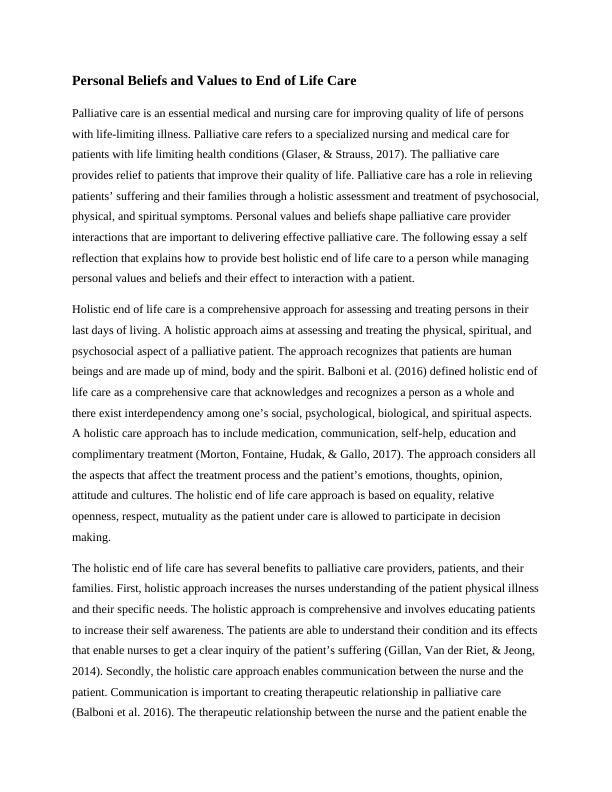Personal Beliefs and Values to End of Life Care
Added on 2023-06-13
5 Pages1831 Words442 Views
End of preview
Want to access all the pages? Upload your documents or become a member.
Palliative Care Nursing: Strategies for Holistic End-of-Life Care
|7
|1713
|70
Holistic Palliative Healthcare
|7
|1897
|366
Reflection on Palliative Care
|7
|2006
|402
Holistic Care in Palliative Care: Understanding Patients' Needs
|5
|1359
|200
Holistic Palliative Care: Managing Personal Beliefs and Values
|7
|1681
|167
Concept Analysis Template | Nursing
|7
|1632
|11


